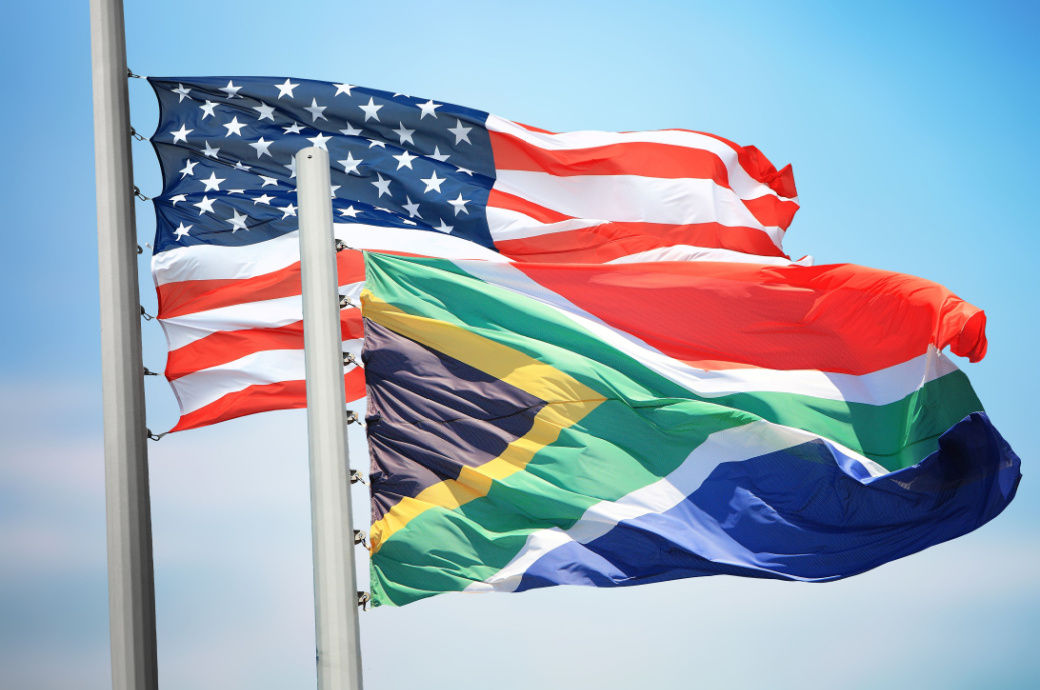
Many of the most vulnerable countries to climate change are in Africa, and the partnerships highlighted at the Summit will be essential to bolstering their resilience.
Since January 2021, the US administration has invested and plans to provide at least $1.1 billion to support African-led efforts to support conservation, climate adaptation and a just energy transition. These investments include infrastructure projects under the Partnership for Global Infrastructure and Investment (PGII).
New initiatives include Power Africa, the US-Africa Clean Tech Energy Network (CTEN), the Health Electrification and Telecommunications Alliance (HETA), growing green jobs for women, Accelerating Women’s Empowerment in Energy (AWEE), the Climate Action Infrastructure Facility (CAIF) and US International Development Finance Corporation (DFC) investments.
In 2021, Power Africa-supported renewable energy projects helped prevent 6.2 million tonnes of carbon dioxide emissions, the equivalent of burning 6.8 billion pounds of coal. Since 2013, Power Africa has helped deliver access to electricity to nearly 165 million people across sub-Saharan Africa.
The US administration under President Joe Biden has invested $193 million to support Power Africa and plans to provide another $100 million in FY 2023.
Power Africa, in partnership with Prosper Africa, launched CTEN, which connects US and African clean technology energy companies to market opportunities where project-ready technology can increase access to reliable electricity. CTEN aims to facilitate up to $350 million in deals within the first five years.
Power Africa intends to operationalise a $150 million public-private partnership to electrify 10,000 health facilities in sub-Saharan Africa, bolstering sector resources to advance pandemic resilience and digital connectivity and decarbonise health-sector footprint.
Power Africa will launch a new initiative focused in Nigeria to advance women’s participation in the energy sector’s transition to clean energy technologies.
The US department of state announced the AWEE project with an initial investment of $1 million to help secure women’s economic futures through green jobs, with a focus on Kenya and South Africa. The programme will provide grants to local organisations to address barriers to women’s entry, promotion and retention in the clean energy sector and increase women’s participation in the clean energy workforce.
The US Agency for International Development (USAID) plans to contribute $10 million in Africa to facilities and funds that bring private investors and donors together to support large-scale climate solutions.
CAIF will enable USAID to contribute to facilities and funds that bring multiple investors and donors together to invest in large-scale climate solutions in emerging and frontier markets.
Since January 2021, DFC has committed more than $438 million to climate-linked projects in Africa to advance renewable energy and related supply chains, electric mobility, ecosystem conservation, food security and agriculture, energy efficiency, green hydrogen, and green finance.
At the US-Africa Leaders Summit, DFC announced $25 million loan to Golomoti JCM Solar Corporation Limited in Malawi for the first solar power plant in sub-Saharan Africa with a grid-connected battery energy storage system that will help ensure dependable supply and reduce frequent blackouts.
This Power Africa project builds on a previous US Trade and Development Agency (USTDA)-funded feasibility study and indirect Millennium Challenge Corporation (MCC) support.
The MCC Compacts signed earlier this year with the governments of Lesotho and Malawi provide over $110 million of adaptation financing.
Bolstering Power Africa, USTDA is investing nearly $4 million to support a just energy transition across several African countries. These investments include a biomass power plant in Cote d’Ivoire, a clean hydroelectric power in Sierra Leone and a battery energy storage technology project in Zambia.
The US department of energy too announced a series of new partnerships to support a just energy transition.
These include one with Kenya to implement direct air capture with geothermal energy to remove 1,000-10,000 tonnes of carbon dioxide per year; another with Morocco to launch the Solar Decathlon Africa Design Challenge, a biennial competition that challenges teams of university students across the continent to design, build, and operate solar-powered houses; and a third with Mozambique to expand domestic energy access, support responsible natural gas and renewable energy development, and add economic value to critical minerals production and processing.
The US African Development Foundation (USADF) announced three Off-grid Energy Challenges (healthcare, agriculture, and women in energy) through which the agency will provide grants to African enterprises to promote market-based solutions that connect businesses to electricity and impact marginalised communities.
Fibre2Fashion News Desk (DS)